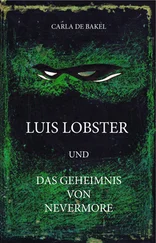B. Haywood - Town in a Lobster Stew
Здесь есть возможность читать онлайн «B. Haywood - Town in a Lobster Stew» весь текст электронной книги совершенно бесплатно (целиком полную версию без сокращений). В некоторых случаях можно слушать аудио, скачать через торрент в формате fb2 и присутствует краткое содержание. Год выпуска: 2011, ISBN: 2011, Издательство: Berkley, Жанр: Детектив, на английском языке. Описание произведения, (предисловие) а так же отзывы посетителей доступны на портале библиотеки ЛибКат.
- Название:Town in a Lobster Stew
- Автор:
- Издательство:Berkley
- Жанр:
- Год:2011
- ISBN:978-0425240014
- Рейтинг книги:5 / 5. Голосов: 1
-
Избранное:Добавить в избранное
- Отзывы:
-
Ваша оценка:
- 100
- 1
- 2
- 3
- 4
- 5
Town in a Lobster Stew: краткое содержание, описание и аннотация
Предлагаем к чтению аннотацию, описание, краткое содержание или предисловие (зависит от того, что написал сам автор книги «Town in a Lobster Stew»). Если вы не нашли необходимую информацию о книге — напишите в комментариях, мы постараемся отыскать её.
Town in a Lobster Stew — читать онлайн бесплатно полную книгу (весь текст) целиком
Ниже представлен текст книги, разбитый по страницам. Система сохранения места последней прочитанной страницы, позволяет с удобством читать онлайн бесплатно книгу «Town in a Lobster Stew», без необходимости каждый раз заново искать на чём Вы остановились. Поставьте закладку, и сможете в любой момент перейти на страницу, на которой закончили чтение.
Интервал:
Закладка:
Five

At Wilma Mae’s invitation, Candy took a few minutes to examine the secret drawer. She could see nothing unusual about it, other than the fact that it was ingeniously designed. She played with the mechanism that released it, pushing the drawer into its hiding spot, then popping it back out a few times.
She leaned in for a closer look. There were no tool or scratch marks, no signs of forced entry, nothing to indicate the drawer had been broken into. Nothing, as far as she could see, to indicate anything had been stolen from it — or that anything had ever been inside, for that matter.
That meant whoever had stolen the recipe — allegedly stolen the recipe, Candy reminded herself — must have known how to open the drawer.
Could Wanda Boyle have done such a thing? Would she have broken into Wilma Mae’s home, climbed those stairs, found this bedroom, and activated the release mechanism that opened the drawer?
Why would she have wanted the recipe in the first place?
As Candy pondered these questions and continued to study the drawer, she said hmm several times, causing Wilma Mae to look at her expectantly. But since she wasn’t a forensics expert, she didn’t know what to do next. Look for fingerprints? Hair samples? Fibers? Way out of her league. She was hardly an investigator of any sort, even in the broadest definition of the term. She still found it amusing that people around town thought of her as a detective at all — which, of course, she wasn’t. She knew that better than anyone.
And here was the proof.
A helpful note from the alleged thief would have solved the problem — perhaps with an address and phone number to make things easier? In the end she had nothing concrete, no theories or suppositions to offer the elderly woman.
As they headed back downstairs, Candy tried to sort out all she had just heard and seen.
Wilma Mae was quite a tale spinner — that much was true. But was anything else?
Candy was torn. The practical part of her couldn’t help thinking that maybe Wilma Mae had simply misplaced the ledger that contained the recipe — left it out on another shelf somewhere, or in the back of another drawer, or given it to someone and simply forgotten she’d done so. People forgot where they put things all the time. Even Candy did it, all too often, much to her frustration. And Wilma Mae was well into her eighties. These sorts of things happened.
That was the simplest explanation. But was it the right one?
Maybe Wilma Mae was telling the truth. Maybe someone — Wanda Boyle? — had stolen the recipe from the elderly woman... but again, Candy asked herself, why?
There seemed to be only one logical explanation: the Lobster Stew Cook-off. Wilma Mae had said the recipe was valuable. It probably was, Candy realized — in more ways than one.
Because, ultimately, it was an award-winning recipe.
That could make it very valuable to certain people in town. But was it worth the risk of stealing it from the home of an elderly woman? That was the part that nagged at her the most. Who could, or would, do such a thing? Who would be that desperate?
Candy almost let out a quick laugh. Knowing this town, she could probably think of a half dozen people, and not even break a sweat doing it.
In some strange way, it was all starting to make sense to her. Winning the annual cook-off was a fairly prestigious achievement around town — the newspaper devoted substantial portions of two issues to it. There was no doubt some people were petty enough to steal recipes from one another if it gave them a competitive edge. These sorts of things happened in small towns all the time. Didn’t they?
And it certainly could have happened here in Cape Willington, Maine, given its overabundance of unique characters.
Couldn’t it?
Candy felt a quick chill go up her spine, a mixture of nervousness and excitement, as she realized she might be onto something. Call it intuition, a sixth sense, or what-ever, but she had to admit she was inclined to believe Wilma Mae.
And that made her pulse quicken, knowing what — and who — she faced.
Wanda Boyle ? Why, of all people, does it have to be her?
Candy shook her head and absently brushed back her honey-colored hair.
She knew what she had to do.
Standing in the kitchen, she told Wilma Mae she’d dig around, ask a few questions in town, and see what she could find out.
Wilma Mae was beside herself with gratitude. “I can’t tell you how happy I am,” the elderly woman said enthusiastically. “Oh, I can pay you! Mr. Wendell left me a little money. And I know Mr. Sedley and myself would both be so grateful if you could get the recipe back for us. It would be like finding a lost member of the family — that’s how much it means to us.”
“Mrs. Wendell, I could never take your money,” Candy said honestly. “Besides, I don’t know if I’ll find out anything at all. Just give me a few days to poke around. I’ll give you a call over the weekend and we can talk then.”
Wilma Mae laid a thin-boned hand on Candy’s arm and gave her a sweet smile. “I knew you were the right person to call. I don’t know how to thank you.”
Candy felt touched. “I haven’t done anything yet... but I’m glad to help if I can.”
She thanked Wilma Mae for the tea, dropped her pen and reporter’s notebook into her purse, and said her good-byes.
Outside, a cool wind blew past her, tossing about her hair and carrying with it the fresh, newborn smell of spring. The chilly breeze pushed her gently along the front walkway, but the midday sun warmed her as she climbed into her old teal-colored Jeep Cherokee, which was starting to show its age. She cranked up the engine, backed out of the driveway, and drove toward the center of town, her mind still occupied with thoughts of Wilma Mae, Wanda Boyle, and the missing lobster stew recipe.
It took her only a few minutes to reach Ocean Avenue, a gently sloping central boulevard lined with quaint shops, restaurants, and other businesses. It ran in length only for a long, stretched-out block, from Main Street at its northerly end to Town Park, the Lightkeeper’s Inn, the Coastal Loop road, and the sea at its southerly tip. Its most notable feature was the Pruitt Opera House, which stood in stately fashion halfway down the avenue on the northern side.
Candy glanced at the opera house as she turned onto Ocean Avenue. It had been there, on the building’s high widow’s walk, that one of the most harrowing experiences of her life had occurred on a rainy night ten months ago. Even now, the memory of that raw, windy night gave her goose bumps as images of the life-and-death struggle flashed through her mind.
Quickly she shook away those thoughts and turned her attention back to the matter at hand.
Finding a parking spot along Ocean Avenue in July and August, at the height of the busy summer tourist season, could be a tricky business, but she found plenty of spaces today. It was the Thursday before the Memorial Day weekend — the end of spring but not quite summer — and the bulk of the incoming visitors had yet to arrive.
Still, Candy could sense a definite air of excitement around town. Cape Willington nearly doubled in size each summer, as the seasonal people arrived to open up their cabins and camps, and out-of-state cars clogged the streets and took up all the good parking spots. At the height of the summer season, in July and August, Ocean Avenue buzzed with conversations and laughter as the sidewalks, shops, cafés, and rustic seaside inns filled up with families and couples looking to spend a few days or weeks out of the day-to-day rat race of the rest of the world and enjoy some much-needed vacation time right here in Candy’s very own cozy coastal village in Downeast Maine.
Читать дальшеИнтервал:
Закладка:
Похожие книги на «Town in a Lobster Stew»
Представляем Вашему вниманию похожие книги на «Town in a Lobster Stew» списком для выбора. Мы отобрали схожую по названию и смыслу литературу в надежде предоставить читателям больше вариантов отыскать новые, интересные, ещё непрочитанные произведения.
Обсуждение, отзывы о книге «Town in a Lobster Stew» и просто собственные мнения читателей. Оставьте ваши комментарии, напишите, что Вы думаете о произведении, его смысле или главных героях. Укажите что конкретно понравилось, а что нет, и почему Вы так считаете.











